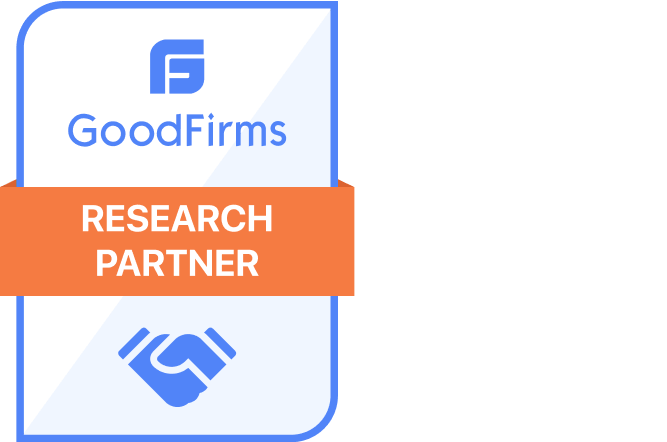A website is more than code on a server—it’s a revenue engine. Yet many teams still treat development spend as a sunk cost instead of an investment that should compound over time. In this guide you’ll learn how to calculate, benchmark and elevate WordPress development ROI so every dollar you pour into your site comes back with friends.
Key takeaway: ROI isn’t a vanity metric. It’s the compass that lets you steer features, budgets and road-maps toward maximum profit.
1. What Exactly Is ROI … and Why Should WordPress Owners Care?
Return on Investment (ROI) expresses the net profit generated by a project as a percentage of the total cost to build and maintain it. The magic of a percentage is that it lets you compare wildly different initiatives—redesigning a WooCommerce store vs. launching a membership portal—on the same playing field.
| Metric | Formula | Purpose |
|---|---|---|
| ROI (%) | (Net Gain – Project Cost) ÷ Project Cost × 100 | Core profitability gauge |
| Payback Period | Project Cost ÷ Average Monthly Net Gain | Months until break-even |
| Lifetime Value (LCV) | Average Order Value × Purchase Frequency × Customer Lifespan | Long-term earning power |
When stakeholders see hard numbers, they move from “Can we afford this?” to “We can’t afford not to.”

2. Breaking Down the Costs of WordPress Development for ROI
A precise ROI starts with an honest ledger. Be sure to include every line item:
- Discovery & Strategy – workshops, road-mapping, and business analysis.
- Design & UX – wireframes, prototypes, UI asset,s and accessibility testing.
- Custom Development – coding, plugin licenses, API integrations.
- Quality Assurance – functional tests, performance audits, security hardening.
- Content & SEO – copywriting, structured data, on-page optimization.
- Launch & Training – migration, documentation, staff onboarding.
- Maintenance & Hosting – updates, monitoring, backups, premium hosting.
Pro tip: Track hours in a time-management tool so you can revisit true costs later.
3. Identifying Gains: Direct Revenue and Hidden Savings
3.1 Direct Revenue Streams
- Product Sales (WooCommerce, Easy Digital Downloads)
- Membership Subscriptions
- Upsells & Cross-sells
- Affiliate Commissions
- Advertising or Sponsorship Slots
3.2 Cost Savings (Often Overlooked)
- Automation that replaces manual data-entry jobs.
- Reduced Support Tickets through self-service knowledge bases.
- Lower CAC thanks to better SEO and organic leads.
- Cheaper Infrastructure after moving to optimized hosting or serverless functions.
These savings add to Net Gain, boosting your WordPress development ROI without a single extra sale.
4. The Definitive WordPress Development ROI Formula
ROI (%) = (Net Gain – Project Cost) ÷ Project Cost × 100
Where:
- Net Gain = (Total Revenue + Cost Savings) – Ongoing Operating Expenses
- Project Cost = All up-front and ongoing development expenses
Plugging both revenue and savings into the same equation gives a truer picture of value delivered.
5. Benchmarks: What Counts as “Good” ROI in WordPress Development?
| ROI % (Year 1) | Verdict | Typical Scenarios |
|---|---|---|
| >150 % | Stellar | Viral SaaS launches, high-margin info products |
| 75 – 150 % | Strong | Well-optimized eCommerce, membership sites |
| 25 – 75 % | Acceptable | Complex corporate or heavily regulated niches |
| <25 % | Underperforming | Poor CRO, slow performance, fuzzy requirements |
While every business is unique, these ranges help you diagnose whether you need a quick tune-up or a full strategic rethink.

6. Five Tactics to Maximize Your WordPress Development ROI
6.1 Start With a Discovery Workshop
A structured workshop like the WPRiders Discovery Workshop uncovers business goals, user personas, and technical constraints before coding starts. Projects born from clarity finish faster and earn sooner.
6.2 Prioritize High-Impact Features
Use the ICE (Impact-Confidence-Ease) scoring model to rank backlog items. Ship the ones with the highest ROI potential first.
6.3 Optimize Site Speed
A one-second page-load improvement can raise conversions by up to 7 % according to industry studies. Compress images, deploy a CDN, and upgrade to PHP 8.3.
6.4 Implement Continuous CRO
- A/B-test headers and CTAs.
- Analyze heatmaps to remove friction.
- Offer personalized upsells in the cart.
6.5 Automate Reporting
Set up custom dashboards in Google Looker Studio. Track ROI-affecting KPIs in real time so you can pivot quickly.
7. Measuring ROI Over Time
ROI isn’t a one-off calculation; it’s a living KPI.
- Monthly Pulse Checks – Compare revenue vs. maintenance costs.
- Quarterly Strategic Reviews – Re-evaluate feature roadmap and market shifts.
- Annual Retrospectives – Plot ROI trending line to justify new budgets.
Tools such as Google Analytics, WooCommerce reports, and custom KPI plugins make data collection painless.

8. Common ROI Pitfalls—and How to Dodge Them
| Pitfall | Fix |
|---|---|
| Underestimating scope creep | Nail down user stories in discovery and use change-request logs. |
| Forgetting ongoing costs | Include plugins, licenses, backups and support in your forecast. |
| Tracking vanity metrics | Tie everything back to revenue or savings. |
| Shipping too late | Release in MVP slices; iterate based on live data. |
9. Putting It All Together: Your WordPress Development ROI Action Plan
- List Costs – Gather every invoice, salary, and SaaS fee
- Quantify Gains – Project revenue and savings realistically
- Calculate using the universal formula above
- Benchmark against the table
- Apply the five tactics in section 7 to lift underperforming metrics
- Repeat measurement quarterly to keep improvements compounding
10. Next Steps—Book Your Free Discovery Workshop
If your site isn’t hitting the ROI you need—or you simply want to double down on what’s already working—our team at WPRiders is ready to help. In a complimentary Discovery Workshop, we will:
- Map your current funnel and revenue leaks
- Prioritize high-impact features in an agile roadmap
- Provide a crystal-clear cost vs. profit forecast
→ Reserve your free slot now and turn your next WordPress development project into an ROI powerhouse.
Calculated returns, happy stakeholders, faster growth—let’s make it happen together.
WPRiders is the go-to custom WordPress plugin development company for businesses that need quality code and fast delivery. Our WordPress support services, WordPress development service, and clear website maintenance agreement options ensure your site runs smoothly—without surprises.
Want expert help without the guesswork? Let’s talk. 🤝






